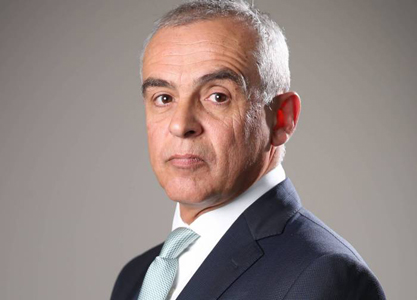How visions of the past affect the future
Robert Shiller, Nobel laureate in economics, wrote about stories and images being created around new economic events. COVID-19 has thrown up a sequence of images from the past, pushing governments and central banks into unknown territory. This is the current ‘Day After’ narrative.
In its views on a post-crisis world, Amundi Asset Management, Europe-based global manager, has adopted the language Shiller used in his book ‘Narrative Economics: How Stories go Viral and Drive Major Economic Events’.
In his recent paper, ‘The Day After: post-crisis narratives that will drive financial markets’, Pascal Blanqué, Amundi’s group CIO, says that financial markets have adapted to this new narrative, pricing in the rosiest scenario of a ‘day-after renaissance’, but more will be needed in terms of fiscal and monetary support to sustain the recovery.
Pascal Blanqué, Amundi’s group CIO, says that financial markets have adapted to this new narrative, pricing in the rosiest scenario of a ‘day-after renaissance’, but more will be needed in terms of fiscal and monetary support to sustain the recovery.
He says the impact of COVID-19 on the real economy – and society as a whole – is deep and pervasive. The overall debt level in the system is skyrocketing and some sectors are very unlikely to recover to pre-crisis levels. In order to avoid social upheaval, social and generational inequalities must be fought.
The paper says: “Politics is the link between public narratives (reinforced in the media and on social media) and institutional narratives. The narratives that will emerge amid hot political events – the US presidential election and the debate around the allocation of resources from the EU Recovery Fund being the most relevant – will set the direction for financial markets.
“Strong narratives can drive market consensus and lead to crowded trades around major themes. When narratives continue to build up, taking a contrarian view can be very dangerous and expensive for portfolio returns. This has been the case in the last few years prior to the rise of the pandemic, when markets were driven by the stimulus narrative (central banks first, Trump fiscal push after). Now, this stimulus narrative continues, coupled with zero interest rates and inflation permanently forgotten… But investors should be aware that narratives could change quickly.”
The markets generally are assuming interest rates will remain low forever, or at least for a long time. Blanqué says this may prove to be a “fragile” assumption. Tackling post-COVID challenges will require further expansion of debt to finance the investments needed to drive changes that could broadly benefit society. High debt levels will require higher inflation and real rates to remain low to favour the repayment of debt.
He says the lower-for-longer interest rate assumption has translated into an over exposure to the “long duration call”. This is reflected in different trades in the market: going long US Treasuries, long investment-grade credit, long ‘big tech’ equities, and long private equity or real estate. “In the end, they are all trades playing the same long duration view,” he says.
Any increase in interest rates, for whatever reason, could make valuations in some segments of the equity market unsustainable, especially in the tech sector. Given the crowded trades in this space, any unwinding of positions could ignite market volatility. This is the key element to watch for today. The paper says: “Currently, inflation is completely off the radar among market participants, but it should be monitored actively as an emerging theme in a world of rising de-globalisation forces and higher debt. Big data and artificial intelligence could become even more relevant in the investment world, as they allow for the tracking of these patterns and the use of them to better understand and forecast trends.”
– G.B.











